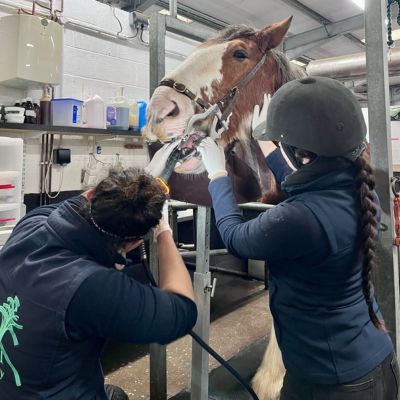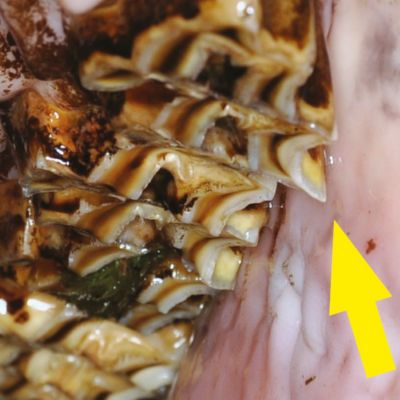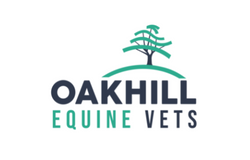Dentistry
Routine dentistry keeps your horses mouth healthy which is an essential and important part of the health care of your horse. We also offer wolf tooth extraction as routine, either on your yard or at our clinic.
Routine dentistry
Dentistry is an essential and important part of the health care of your horse. Your horse’s teeth should be examined at least once a year. In some individuals, particularly for those with dental abnormalities, dental work may be required more frequently.
As qualified veterinary surgeons we are able to provide sedation, pain relief and local anaesthesia as required during dental work, allowing a more thorough examination and treatment and less pain and stress to your horse. This can also be safer for the horse, veterinary surgeon and the handler.
WHY IS ROUTINE DENTAL CARE ESSENTIAL?
During the course of evolution, horses’ teeth have adapted to chew grass and fibre, but in doing so the teeth wear down at a rate of 2 to 3mm per year. This wear is balanced by eruption at an equal rate, until the horse reaches its mid to late twenties, when all of the reserve crown will have erupted and the teeth begin to fall out.
The lower jaw of a horse is narrower than the upper jaw. When a horse grazes at pasture, the natural circular action required to eat grass brings the chewing surface of the opposing teeth into contact and the teeth wear down evenly. When a horse eats hay or hard feed, the horse does not need the same circular action to chew these ‘softer’ feeds and the result is that the outer edges of the top molars and the inner edges of the lower molars do not come into contact and don’t wear down. The end result is sharp enamel edges that cause ulceration and pain.
Centuries of cross breeding horses with differing head sizes has made dental abnormalities, such as hooks, overcrowding and abnormally positioned teeth very common. If a tooth is even partially unopposed then large overgrowths will quickly form, causing pain and impeding chewing.
Compounding these problems, we then put our horses in a bit and bridle which can press against sharp teeth and can cause cheek and tongue lacerations and ulceration. To work on the bit in an outline, the horse must drop the lower jaw forward. Overgrown teeth will restrict this movement of the lower jaw, causing pain and resentment.

ROUTINE DENTAL RASPING (FLOATING)
We recommend that your horse has a dental examination every 6-12 months depending on the age of the horse, their history and whether there are symptoms of oral discomfort. This can be done on your yard or at our equine clinic.
Most horses will require reduction of sharp enamel points and possibly some overgrowth reductions. This can be performed on the yard or at the clinic, with or without sedation.
Our services include the detection and treatment of:
- Congenital abnormalities
- Sharp enamel points
- Overgrowths
- Abnormal conformation including out of line or rotated teeth
- Peripheral and infundibular caries
- Fractures
- Pulp exposure
- Diastemata including associated gum disease
- Oral tumours

HOW CAN YOU RECOGNISE DENTAL PROBLEMS?
Even in horses with moderately severe mouth lacerations and dental disease, the desire to eat will be maintained and the problems may not be obvious without a full dental examination. Signs of dental problems include:
- dropping food (quidding)
- weight loss
- bad odour
- bitting problems or evasion
- head tilt or shaking
- facial swelling/nasal discharge
- colic or choke
